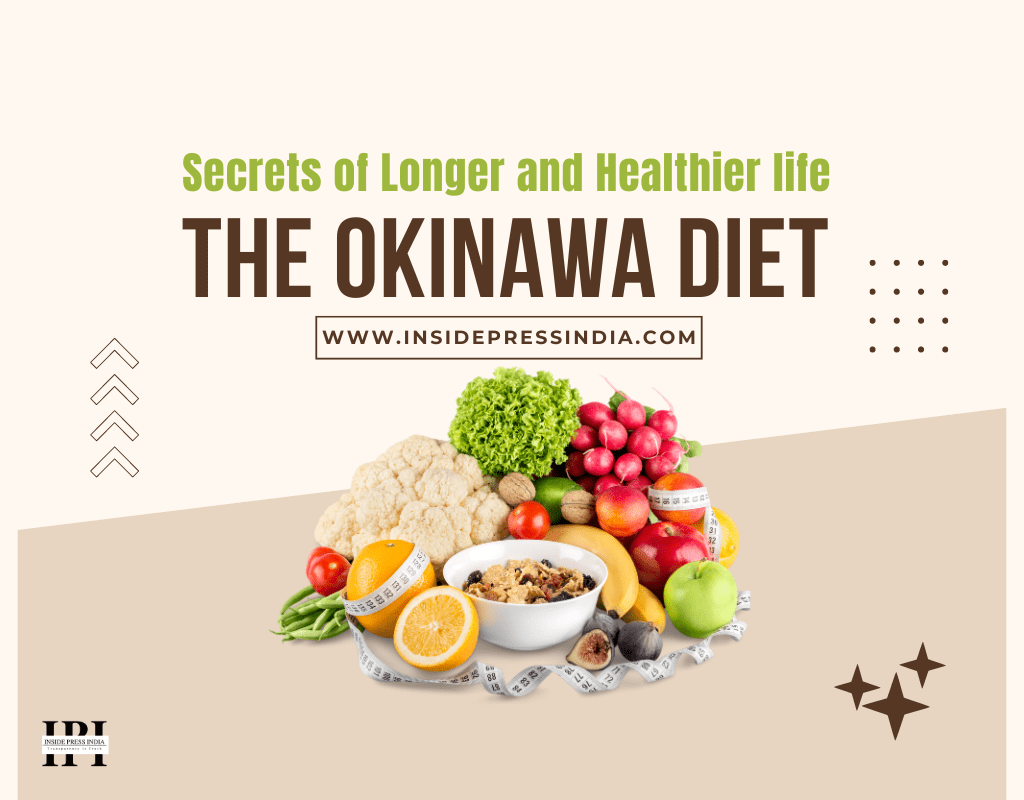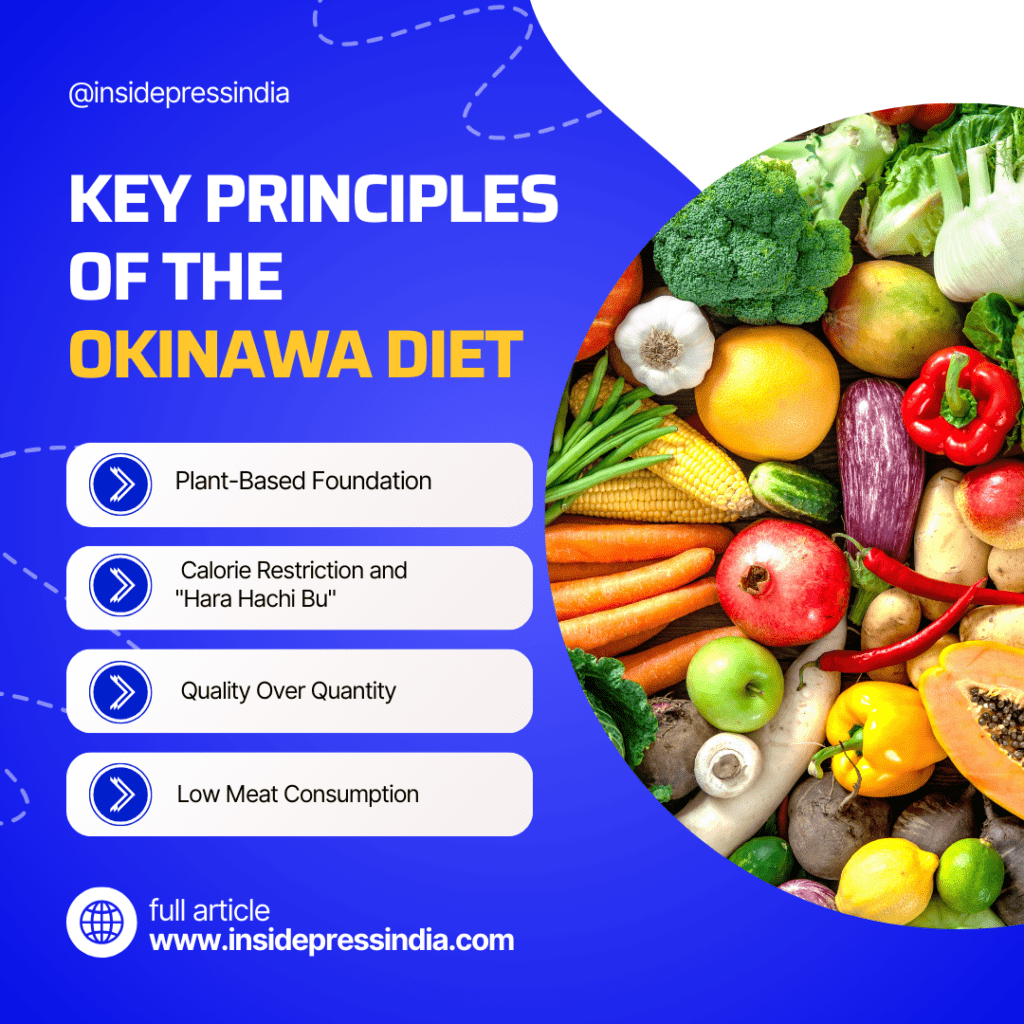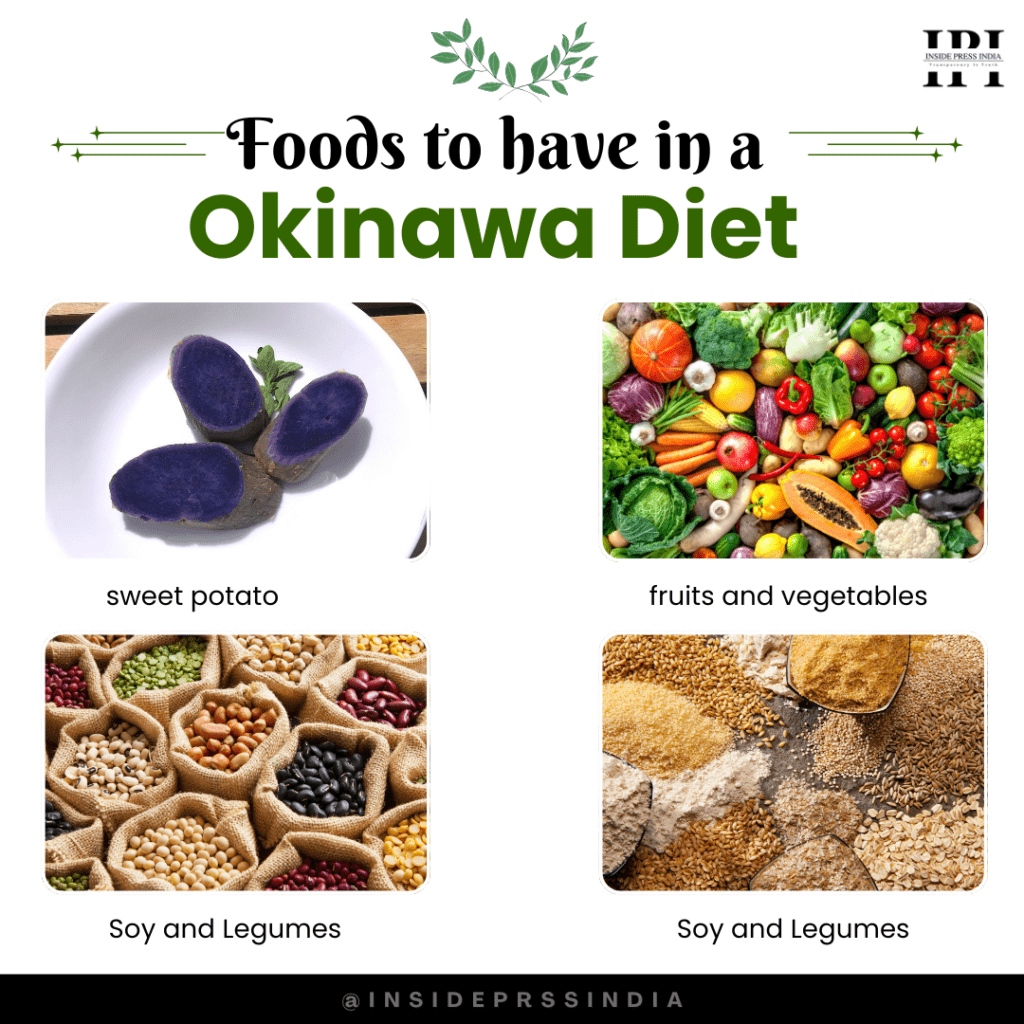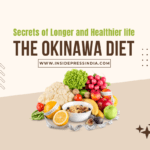
the okinawa diet
The Okinawa Diet
In a world where the pursuit of health and longevity has become a universal quest, the Okinawa diet stands out as a beacon of hope and wisdom. Nestled in the southernmost prefecture of Japan, the islands of Okinawa have long been renowned for their exceptionally high number of centenarians – people who live to be 100 years or older.
This remarkable longevity has captured the attention of researchers, nutritionists, and health enthusiasts worldwide, leading to extensive studies on the lifestyle and dietary habits of the Okinawan people. At the heart of their incredible health and longevity lies the Okinawa diet, often referred to as the “secret of long life.”
The Origins of the Okinawa Diet
The Okinawa diet is not a modern invention or a carefully crafted eating plan designed by nutritionists. Instead, it is a traditional way of eating that has been practiced for centuries by the inhabitants of the Okinawa islands. This dietary pattern evolved naturally, shaped by the geographic isolation of the islands, local agriculture, and cultural practices. The result is a unique approach to nutrition that has stood the test of time, contributing significantly to the exceptional health and longevity of the Okinawan people.
Historically, Okinawa was an independent kingdom known as Ryukyu until it became a Japanese prefecture in 1879. This historical independence allowed for the development of distinct cultural practices, including dietary habits that differed from mainland Japan. The traditional Okinawan diet was primarily plant-based, with sweet potatoes serving as the staple food rather than rice, which was more common in other parts of Japan.
Key Principles of the Okinawa Diet

At its core, the Okinawa diet is characterized by several key principles that contribute to its health-promoting effects. Understanding these principles is crucial for anyone looking to incorporate elements of this dietary pattern into their own life.
Plant-Based Foundation
The traditional Okinawa diet is predominantly plant-based, with a strong emphasis on vegetables, legumes, and whole grains. Vegetables, particularly sweet potatoes, make up the bulk of the diet, providing a rich source of complex carbohydrates, fiber, and various micronutrients. This focus on plant foods ensures a high intake of antioxidants, which play a crucial role in protecting against cellular damage and age-related diseases.
Calorie Restriction and “Hara Hachi Bu”
One of the most intriguing aspects of the Okinawa diet is the practice of “hara hachi bu,” a Confucian teaching that instructs people to eat until they are 80% full. This principle naturally leads to a form of calorie restriction, which has been linked to increased longevity in numerous studies. By consuming fewer calories while still obtaining essential nutrients, Okinawans may be reducing oxidative stress and inflammation in the body, two key factors in the aging process.
Quality Over Quantity
The Okinawa diet places a strong emphasis on the quality of food rather than quantity. Traditional Okinawan meals are typically composed of a variety of small dishes, each offering different nutrients and flavors. This approach not only ensures a diverse nutrient intake but also promotes mindful eating and satisfaction with smaller portions.
Low Meat Consumption
While not strictly vegetarian, the traditional Okinawa diet includes very little meat. When animal products are consumed, they are often in the form of fish or occasionally pork, but in much smaller quantities compared to Western diets. This limited meat consumption contributes to the diet’s overall low saturated fat content and may play a role in reducing the risk of chronic diseases associated with high meat intake.
Staple Foods of the Okinawa Diet

Understanding the specific foods that form the foundation of the Okinawa diet is crucial for appreciating its nutritional value and potential health benefits.
Sweet Potatoes: The Cornerstone of Longevity
Purple sweet potatoes, known locally as “beni imo,” are the staple food of the traditional Okinawa diet. These nutrient-dense tubers are rich in complex carbohydrates, dietary fiber, vitamins (particularly vitamin A and C), minerals, and antioxidants. The high antioxidant content, especially from anthocyanins that give them their purple color, may contribute significantly to the diet’s anti-aging effects.
Vegetables and Fruits
A wide variety of vegetables and fruits form an integral part of the Okinawan diet. Bitter melon (goya), known for its potential blood sugar-regulating properties, is a popular vegetable. Other commonly consumed vegetables include seaweed, bamboo shoots, and various greens. Fruits, while consumed in moderation, typically include tangerines, bananas, and melons.
Soy and Legumes
Soy products, particularly tofu and miso, are important protein sources in the Okinawa diet. These foods not only provide high-quality plant protein but also contain isoflavones, which may have protective effects against certain cancers and heart disease. Other legumes, such as soybeans and adzuki beans, are also regularly consumed.
Whole Grains
While sweet potatoes are the primary starch, whole grains such as brown rice, millet, and wheat are also part of the traditional diet. These grains provide additional fiber, B vitamins, and minerals, contributing to the overall nutritional balance of the diet.
The Role of Lifestyle in Okinawan Longevity
While the diet plays a crucial role in the longevity of Okinawans, it’s important to recognize that their exceptional health is not solely attributed to what they eat. The Okinawan approach to life encompasses several other factors that contribute to their well-being and longevity.
Regular Physical Activity
Okinawans traditionally maintain an active lifestyle well into old age. Activities like gardening, walking, and practicing tai chi are common, providing regular low-impact exercise that keeps the body and mind engaged. This consistent physical activity contributes to cardiovascular health, maintains muscle mass, and promotes overall well-being.
Strong Social Connections
The Okinawan culture places great emphasis on social connections and community support. Elderly individuals often remain integrated into their communities, maintaining a sense of purpose and belonging. These strong social ties have been linked to better mental health, reduced stress levels, and increased longevity.
Sense of Purpose
The Okinawan concept of “ikigai,” which roughly translates to “reason for being,” plays a significant role in their approach to life. Having a clear sense of purpose and feeling valued within the community contributes to mental well-being and may have positive effects on physical health as well.
Stress Management
Traditional Okinawan culture incorporates various practices that help manage stress, including meditation, deep breathing exercises, and a general attitude of gratitude and contentment. These practices can help reduce the negative impacts of stress on the body and mind, potentially contributing to longevity.
Adapting the Okinawa Diet to Modern Life
While the traditional Okinawa diet has proven benefits, it’s important to note that the modern diet in Okinawa has changed significantly due to Western influences. However, the principles of the traditional diet can still be applied to contemporary lifestyles with some adaptations.
Incorporating more plant-based foods, particularly sweet potatoes and a variety of vegetables, into your diet is a good starting point. Reducing meat consumption and focusing on fish as a primary animal protein source can also align with Okinawan principles. Practicing mindful eating and the concept of “hara hachi bu” can help with portion control and prevent overeating.
It’s also crucial to consider the lifestyle factors that complement the Okinawa diet. Engaging in regular physical activity, nurturing social connections, and finding a sense of purpose in life are all valuable lessons we can learn from the Okinawan approach to longevity.
Secrets of Longer and Healthier life with Okinawa Diet
The Okinawa diet, with its emphasis on plant-based foods, calorie restriction, and quality over quantity, offers valuable insights into achieving better health and longevity. Combined with an active lifestyle, strong social connections, and a sense of purpose, this approach to eating and living has contributed to the exceptional longevity of the Okinawan people.
While it may not be practical or necessary to adopt the Okinawa diet in its entirety, incorporating some of its principles into our modern lifestyles can potentially lead to improved health outcomes. As with any significant dietary change, it’s always advisable to consult with a healthcare professional or registered dietitian before making major alterations to your eating habits.
The wisdom of the Okinawa diet reminds us that the path to longevity is not just about what we eat, but how we eat and how we live. By embracing a more balanced, mindful approach to nutrition and lifestyle, we may unlock some of the secrets to a longer, healthier life.
Written by – VEDICAA SAWAL
FOLLOW IPI ON INSTAGRAM CLICK HERE
World’s 7 biggest financial scams that burnt Investor’s money till its teeth, CLICK HERE
Join IPI membership and get exclusive benefits for free- JOIN NOW
Subscribe INSIDE PRESS INDIA for more

What is Okinawa diet
The Okinawa diet is not a modern invention or a carefully crafted eating plan designed by nutritionists. Instead, it is a traditional way of eating that has been practised for centuries by the inhabitants of the Okinawa islands.
Can I follow the Okinawa diet if I’m vegetarian or vegan
Yes, the Okinawa diet is primarily plant-based and can be easily adapted for vegetarian or vegan lifestyles. You may need to ensure adequate protein intake through soy products, legumes, and other plant-based protein sources.
How does the Okinawa diet differ from other popular diets like the Mediterranean diet
While both diets emphasize plant-based foods, the Okinawa diet relies more heavily on sweet potatoes as a staple food, includes less olive oil, and traditionally incorporates even less meat than the Mediterranean diet. The Okinawa diet also uniquely features the practice of “hara hachi bu” for calorie restriction.
Are there any potential drawbacks to following the Okinawa diet
The traditional Okinawa diet may be lower in calcium than recommended for optimal bone health. Additionally, strict adherence to calorie restriction may not be suitable for everyone, particularly growing children, pregnant women, or those with certain health conditions.
How long does it take to see benefits from following the Okinawa diet
Some benefits, such as improved digestion or increased energy, may be noticeable within a few weeks. However, the long-term benefits associated with longevity and disease prevention may take years to manifest and are best achieved when combined with other healthy lifestyle practices.
Can I still enjoy occasional treats while following the Okinawa diet principles
Yes, moderation is key. The Okinawa diet is not about strict deprivation but rather about making mindful choices most of the time. Occasional treats can be enjoyed as part of a balanced approach to eating and living.







